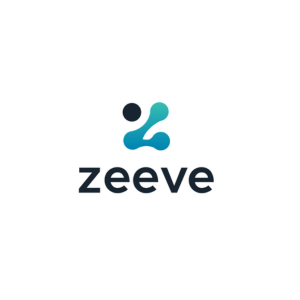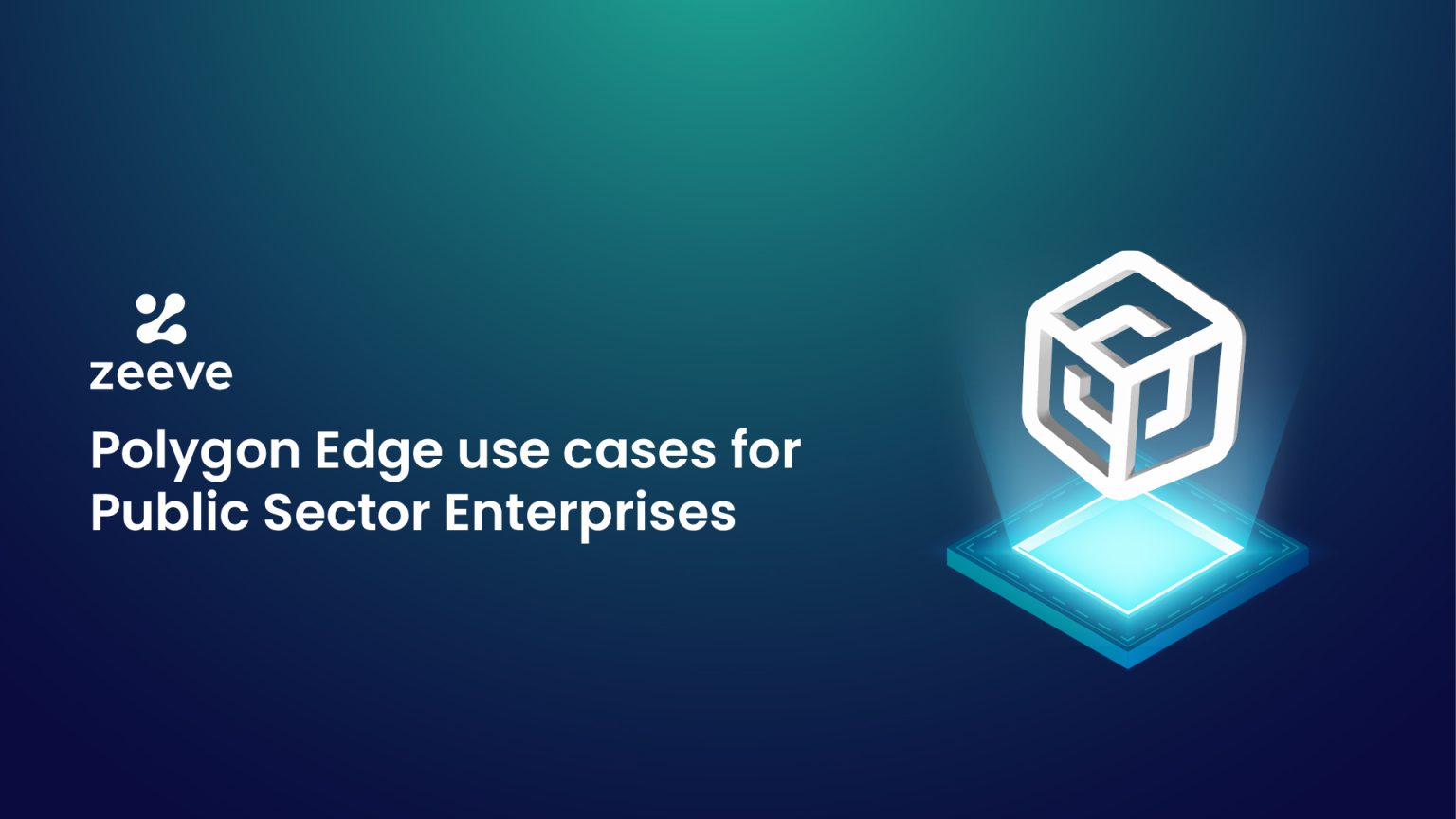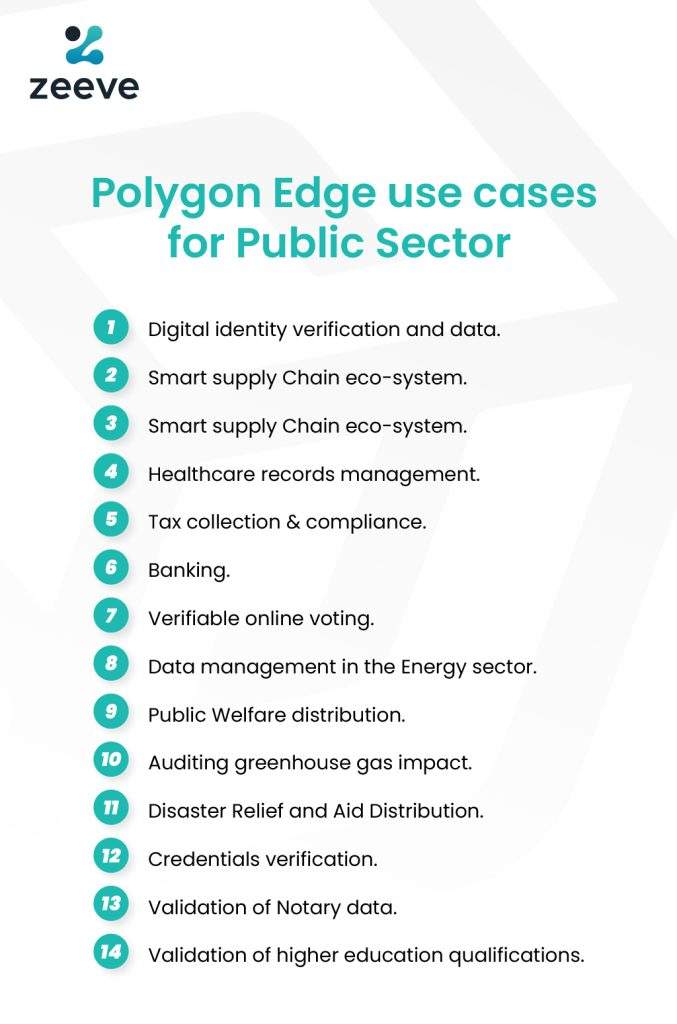Polygon Edge use cases for Public Sectors Enterprises
 Zeeve
Zeeve
Polygon Edge is a powerful appchain framework that allows a variety of enterprises, including public sectors, to launch custom, single-use blockchains. Speaking about the public sector, many of them have chosen Polygon Edge as their preferred ecosystem for achieving high scalability, modularity & flexibility, interoperability, options for zero gas fees, and more.
Edge provides public sector enterprises with a range of benefits like compliance implementation options–including infrastructure customization, the ability to introduce their own tokenomics, flexibility in adding additional security features, on-chain governance, and full control over the network participants and their actions. As required, they can build a fully public or permissive blockchain with Polygon Edge. For example, you can build a private blockchain and will still benefit from the security of a public blockchain. Hence, let's explore Polygon Edge use cases for public sector enterprises, understanding Edge has been benefiting them.
What are the Polygon Edge use cases for Public Sector Enterprises?
Polygon Edge was launched to accommodate dApps with large volumes of data and a sufficiently bigger chunk of users. For those who wanted to deploy highly scalable custom blockchains, Edge has been a viable choice as it lets businesses customize the blockchain ecosystem based on the use of case-specific parameters.
For public sectors, these benefits, plus the tamper-proof, immutable nature of blockchains, can be leveraged in many ways.
Note that Polygon Edge was launched at a time when there was no easy way to launch Optimistic or ZK rollups, no plug-and-play choices for building your own appchains. So, for those who don’t want to build on Permissive blockchains like Hyperledger Fabric, Corda, etc, Edge was a fantastic choice to create an application-specific side chain. Though the Edge support is now deprecated from the Polygon team, you can still use Zeeve for maintaining your existing Polygon Edge networks or consider upgrading to a layer2 rollup with Zeeve RaaS.
On that note, let's explore the potential use case of Polygon Edge for public sector enterprises.
Also Read: A beginner’s guide to Polygon Edge.
- Advanced Digital Identity Verification system:
One significant application of Polygon Edge use cases in public sector enterprises is identity verification and management. Utilizing Edge, companies can tailor highly flexible Layer-2s to securely store sensitive information about individuals and their identities, providing data access exclusively to authorized members. Additionally, Polygon Edge inherits security directly from the underlying Layer-1 blockchain (Polygon or Ethereum), effectively addressing issues related to identity verification and data management, including insecurity, identity theft, and unauthorized access.
- Better Supply Chain management:
Polygon Edge addresses challenges within the supply chain by offering solutions to data manipulation, access control, and regulatory compliance issues. For example, supply chain solutions developed with Polygon Edge can be optimized to add specific permissioning parameters, defining who can verify, publish, and access data. This customization ensures a highly secure, traceable, and efficient supply chain system. The dedicated appchain ecosystem enhances response time and transaction throughput, eliminating the possibility of network congestion, given that the blockchain is exclusively dedicated to supply chain management.
- Easy Settlement of Cross-Border Transactions:
Settlement of cross-border transactions on public blockchain ecosystems can be a challenge due to increasing transaction volumes, slow processing, high fees, regulatory barriers, and currency fluctuations. Public sector enterprises, such as banks, handle a substantial number of cross-border transactions daily. However, a blockchain application optimized specifically for handling cross-border transactions related to public sector enterprises, such as international trade, economic activities, tourism, and remittance, can mitigate these challenges. Polygon Edge provides a reliable ecosystem for simplifying cross-border transactions through features like permissioned/public infrastructure, an on-chain governance mechanism, and the ability to customize blockchain-level parameters.
- Healthcare Records Management:
In the public healthcare sector, where vast amounts of data are generated, Polygon Edge offers a solution for maintaining the security and immutability of healthcare records. Government agencies utilize blockchain to secure this information. However, being on a public blockchain poses privacy concerns, as the information is stored in an open database, with each application user having a copy of the data. Polygon Edge-based appchains provide an effective way to manage healthcare records by configuring access parameters and specifying who can view the details and who cannot. The AppChain ecosystem can be further configured to balance public availability and privacy.
- Tax Collection and Compliance:
Government agencies employing blockchain-based solutions for tax collection and compliance face the challenge of maintaining compliance despite evolving policies. The data related to taxation needs to be recorded across a secure and interoperable environment. Polygon Edge allows tax management authorities to create an application-specific blockchain for handling tax procedures and taxation data. The on-chain governance feature of Edge enables administrators to make necessary changes to their blockchain, ensuring exceptional security and preventing tampering or unauthorized access to tax data.
- Banking and investment:
Blockchain offers numerous benefits for banks and traditional finance, but the adoption of blockchain in public sector banking remains slow due to challenges such as privacy concerns, slow transaction processing caused by high network congestion, and governance issues. Polygon Edge addresses these challenges by providing an AppChain infrastructure accessible only to approved entities, such as sub-branches. Blockchains created with Edge can be customized to meet the specific needs of public sector banks, including faster settlement of transactions, improved interoperability, and accelerated processing of RTGS.

- Verifiable Online Voting:
Blockchain-based voting applications, facilitating decentralized voting through mobile apps or laptops, simplify the traditional voting system. The decentralized app verifies voter identity before allowing them to cast a vote. Given the sensitivity of voting information, public blockchains may not be suitable, as identities can be tracked back. On the other hand, purely permissive blockchains may lack security, integrity, and accessibility. Polygon Edge proves to be a suitable fit for voting applications, combining features of both permissioned and public blockchains. It inherits security, integrity, and excellent accessibility features from the underlying Layer-1 blockchain, eliminating the risk of security breaches or manipulation of voting data.
- Data Management in the Energy Sector:
Blockchain has played a vital role in transforming public sector energy enterprises by enabling peer-to-peer ledgers for recording immutable data in a decentralized manner. However, challenges such as high gas consumption, delays in transaction confirmation, and the potential risks of 51% attacks persist in public blockchains with high network congestion. Sidechains built with Polygon Edge offer a solution, allowing energy enterprises to enhance the scalability of their blockchain applications by powering a single app. Polygon Edge, being resistant to risks like 51% attacks, supports both economic and governance-based security. The energy sector can leverage Polygon Edge for various use cases, including grid management, regulation and compliance management, commodity trading, and more.
- Public Welfare Distribution:
Blockchain plays an active role in transforming current welfare distribution programs into a smarter and fairer system. In the context of public blockchains, information about welfare distribution programs need not be publicly available to prevent conflicts and protect privacy. Choosing Polygon Edge allows welfare distribution enterprises to create a sovereign network where participants must have the authority to participate, keeping bad actors away. Moreover, if information needs to be shared with other network members, Edge-based appchains can be customized to function as public blockchains as needed.
- Auditing Greenhouse Gas Impact:
Major countries, including the European Union, now leverage blockchain to enhance the transparency, accountability, and traceability of greenhouse gas emissions. However, challenges arise in achieving instant data authentication, real-time transaction processing, and ensuring the security and integrity of data. Polygon Edge enables climate change and risk management companies to create a tailored blockchain solution for tracking, auditing, and verifying carbon emissions in real time. This ensures reliable security for produced data, granting authorities full sovereignty over the network.
- Disaster Relief programs and aid management:
The success of disaster relief programs and aid distribution schemes are largely based on collaboration, sovereignty, and coordination among all the members. While blockchain promises transparent, secure, and real-time data exchange, the choice of the ecosystem significantly impacts the programs' success. Government authorities, requiring complete control of the blockchain protocol for managing disaster relief and aid distribution programs, face challenges in a public blockchain sharing its ecosystem with many networks. Alternatively, these authorities can build a single-use blockchain with Polygon Edge, being able to modify permissions and accessibility parameters as per their requirement. The data remains highly protected and accessible only to authorized network members, while the general public can still view relevant information.
- Verification of credentials:
Public sector organizations, such as educational institutions, medical colleges, and government entities, can utilize Polygon Edge to create a specialized blockchain for instant and secure credentials verification. Since these credentials are sensitive data, it cannot be shared publicly.. Therefore, blockchain built with Edge only permit authorized network participants to check, verify, and share the data with end-users. The underlying ecosystem can be easily customized based on changing regulations and policies, thanks to Polygon Edge's flexibility. Upgrades to the protocol are also facilitated through Edge's on-chain governance feature.
- Notary-related data validation and management:
Blockchain streamlines the notarization process by providing a distributed, immutable ledger for storing notary-related data. For example, government can store sensitive information such as land registry contracts, power of attorney affidavits, and other jurisdictional deeds in distributed, immutable ledger of blockchain. But, storing such data in a publicly available ecosystem can be risky. As a solution, Polygon Edge offers a permissioned ecosystem to build a sovereign chain where accessibility parameters can be configured to determine who can access the notary data and who can publish information, etc. By doing so, Edge addresses the security and privacy concerns of the Notary department, eliminating potential risks and fraud.
Manage/upgrade your Polygon Edge with Zeeve
From the whole explanation, it is evident that Polygon Edge was a viable option for public sector enterprises. However, as discussed, Polygon has discontinued support for Polygon Edge Network as they are focusing on Polygon CDK. But, with Zeeve, you can seamlessly manage your existing Polygon Edge networks on a highly scalable, enterprise-grade infrastructure, complete with ISO 27001, SOC2 Type2, GDPR compliance, and SLA support for up to 99.95%.
Also, if you want, Zeeve will help you migrate your Polygon Edge network to Polygon CDK. Zeeve offers modular zkRaaS, including one-click deployment Polygon CDK Sandbox, optimized for minimal turnaround time and no data-loss guarantee. Zeeve ensures effortless migration with no downtime or impact on the network’s performance; only the underlying infrastructure will change. For more information on how Zeeve is simplifying Polygon Edge network management or its upgrade to Polygon CDK migration, feel free to connect with our experts. You can drop your queries via mail on this page or schedule a one-on-one call for a detailed discussion.
Subscribe to my newsletter
Read articles from Zeeve directly inside your inbox. Subscribe to the newsletter, and don't miss out.
Written by

Zeeve
Zeeve
Zeeve is an enterprise-grade low-code Blockchain Infrastructure-as-a-Service platform, compliant with ISO 27001, SOC2 Type II, and GDPR standards. We are the leading provider of Rollups-as-a-Service, dedicated node infrastructure, and hosted subgraphs. All the infrastructure managed by Zeeve includes 24x7 monitoring, Enterprise SLA, 99.9% uptime guarantee, and management dashboards to ensure a secure and scalable infrastructure. With support for all major Blockchains, 27,000+ platform users, and 40+ enterprise clients, Zeeve stands tall as the global go-to provider for Web3 infrastructure.
